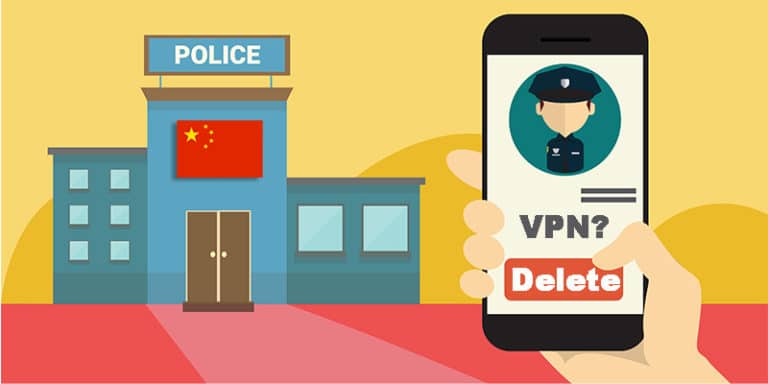
Is it Legal to Use a VPN in China?
You have probably heard about the rigorous internet policy enforced in the Asian state. The “Great Firewall of China” prevents users from opening Western sites and social media. But if Google, Facebook and the like are blocked, do conventional means of circumvention work?
Today, even the less advanced users know about virtual private networks. Such software allows us to access geo-blocked content, such as Netflix series. But are they suitable for the Chinese? And if so, are they legal? Let’s see if a VPN for China could land its users in trouble.
Background

Yes, Chinese residents have been using IP altering software for quite a while, so it was only a question of time before the government officials decided to do something about it. In 2018, the government announced it would prohibit all software of this kind, and proceeded to eliminate all VPN offerings from the country’s Apple store.
Is There Anything You Can Do?
Despite the questionable legality, you can still access Western resources with software like ExpressVPN. Apparently, regardless of the widely circulated media stories on bans, the restrictions still allow loopholes. The government has not imposed any blanket VPN ban so far.

The reason is simple. VPNs are indispensable for many China-based and multinational businesses. After all, they still need to send data abroad and receive data back, and they get government clearance to do so.
For individual users, this is most precarious in political hotspots like Tibet and Xinjiang. There have been reports of arrests for VPN use. However, none of the known incidents involved foreigners.
Is There Any Punishment?

There are just a few known cases when VPN use caused problems.
- Xinjiang
In 2015, local authorities took measures to block the cell phone network of any individual who was caught using the software. In order to restore the connection, each of the affected users had to go to the police, where his phone was checked for the VPN software, and any such programs, as well as foreign messengers, were removed. However, none of the witnesses has told the media of any charges.
- Other Accounts
Occasionally, we still hear stories of fines, but these only apply to locals. So far, there has been no evidence of any grave consequences for foreigners staying or working in the country. They may, however, face numerous annoyances related to their use of virtual private networks.
Conclusion
If you find yourself holidaying or working in China, rest assured that all your favorite resources may still be accessed with the help of the right software. Although some VPNs may be incapable of circumventing the many barriers, there are still quite a few programs that work.
A basic Google search will reveal the list of VPNs that are currently effective against Chinese bans. They should provide an encrypted connection on smartphones, laptops, and other devices. Foreign expats have even reported successfully connecting to a VPN on Amazon Fire Stick for TV. Luckily for businesses and individuals alike, the state-imposed restrictions allow certain exceptions.



